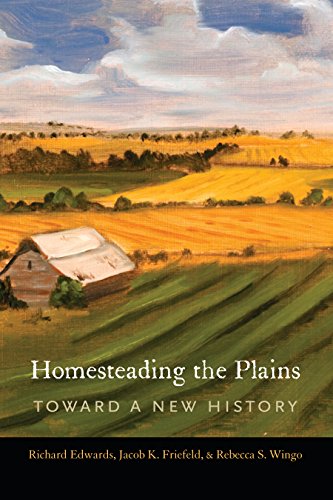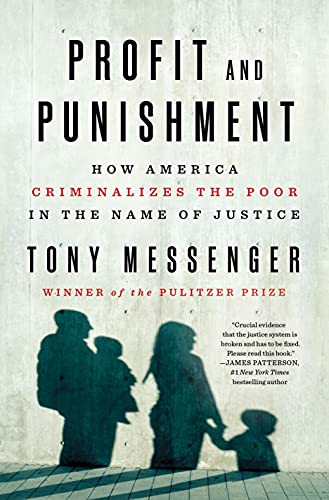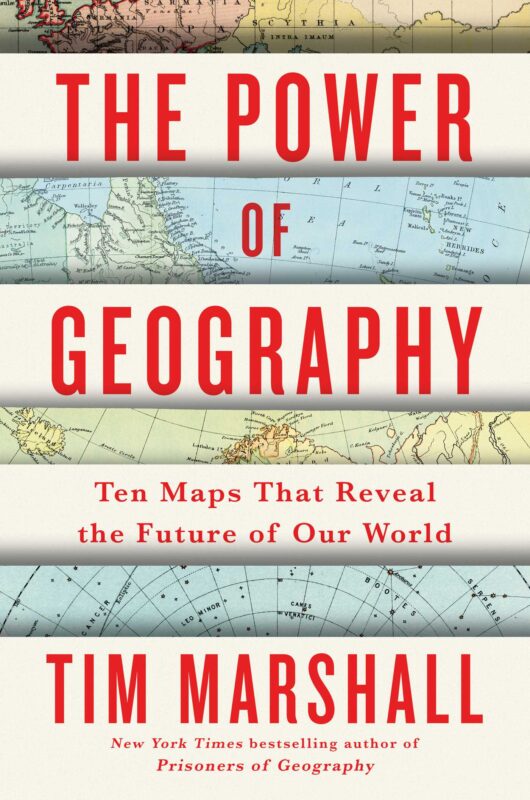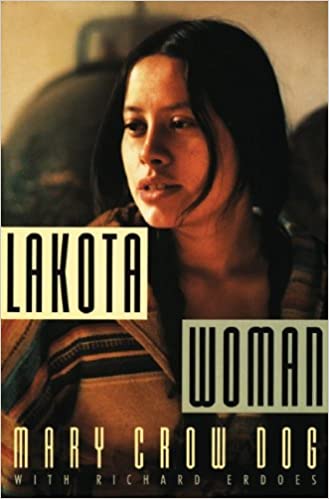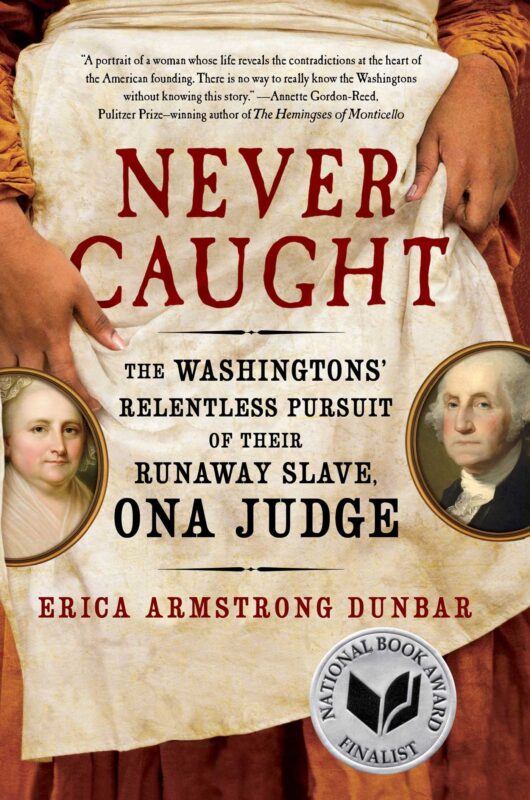Homesteading the Plains: Toward a New History
Series: Reads and Reviews, Reads and Reviews - May 2022
Genre: Historical Nonfiction - Adult
Tag: Recently Read
The authors of Homesteading the Plains, Richard Edwards and Jacob Friefeld, examined the major myths related to the Homestead Act. These myths were often accepted as truth and had permeated the literature on the subject without any critical analysis of the historical details. Edwards and Friefield seek to correct that record by looking at the actual data surrounding the Homestead Act and the settlers that moved to that territory.
I found this book when I was researching the Homestead Act. Like the authors, I found that the topic was full of anecdotal stories and there wasn't much statistical or historical analysis. Despite its methodical approach, I still found the text quite readable and very convincing.
More info →Profit and Punishment: How America Criminalizes the Poor in the Name of Justice
Series: Reads and Reviews, Reads and Reviews - February 2022
Genres: Historical Nonfiction - Adult, Social Commentary
This book succinctly summarizes and effectively argues how the for-profit system of fines and fees criminalizes poverty in the United States. It makes its case by following the stories of three people who were caught up in the system. Messenger supports these anecdotal stories with data from many states detailing how this system has caused significant harm. It's clear from his assessment that the only groups who are winning from this system are the for-profit prisons. It costs the government more to criminalize poverty and it certainly doesn't help those in poverty to escape their circumstances, nor does it make communities safer in any shape or form. It's clear that this system needs to change and hopefully politicians will be clear-eyed enough to look past the immediate profits and towards the longstanding damage these fines and fees create.
More info →The Power of Geography
Series: Reads and Reviews, Reads and Reviews - November 2021
Genre: Historical Nonfiction - Adult
Lakota Woman
Series: Reads and Reviews, Reads and Reviews - October 2021
Genre: Historical Nonfiction - Adult
Mary Crow Dog was born on a desolate South Dakota reservation, she survived a missionary school, was among those protesting at Wounded Knee in 1973 (while 9 months pregnant), and was an insider to the American Indian Movement. Although this book is written more as a narrative than as a historical story, there is so much history to be found in this text. I confess that I didn't know much about the American Indian Movement of the 1970s beyond the standard textbook definition. Therefore, when I read the back of this book, I knew it belonged in my "to be read" pile.
Mary's story is both raw and sparse. Much of it reads like a stream of conscious retelling, as she relays the abuse and indignations that Lakota Sioux have suffered throughout history. Her life story makes the impact of U.S. policy demonstratively clear. If you're looking for a book about more recent Native American history that goes beyond the a basic summary of events, Lakota Woman is perfect.
More info →Never Caught: The Washingtons’ Relentless Pursuit of Their Runaway Slave, Ona Judge
Series: Blog Post Topics, Books Discussing Slavery in America
Genre: Historical Nonfiction - Adult
This is a true story of Ona Judge, a slave of George and Martha Washington, who ran away from them while living in Philadelphia. As the title indicates, Judge was never caught, and she never returned to slavery.
This book combined several narratives in order to paint as clear a picture as possible of Ona Judge’s life. Her story is centered within the lives of the Washington family, and within the time period in general. Dunbar engaged in speculative writing in order to attempt to create a clear vision of what Judge’s life may have been like post enslavement. What I like best about this story was the agency demonstrated by Dunbar in her escape, and the help she received from the free black community.
Historians are often criticized for writing history with a narrative voice, and they are criticized for writing history with a more clinical and dispassionate voice. Dunbar combined both of those styles in this book, and I would argue that it made the story more appealing and compelling.
This book is best suited for high school students, as it deals with the issues of agency and sex more directly. Still, the writing makes the book engaging enough for a student who might also love historical fiction.
More info →